My Top 10 Favourite Books Of All Time.
A Trip Down Memory-Lane.
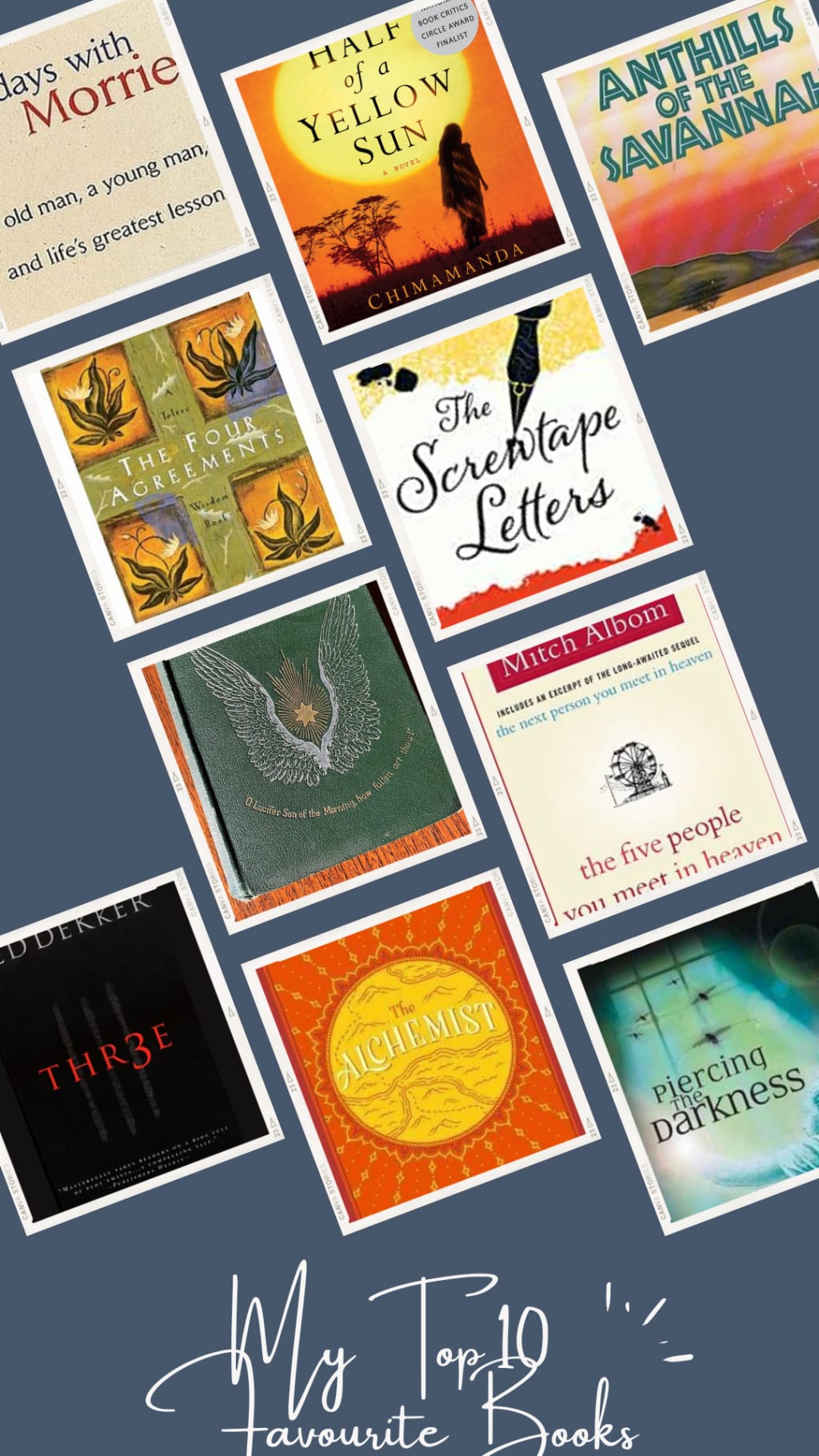
There are many ways I like to escape reality and reading books is one of them. Today, in conversation with my therapist I was led down memory lane to some key moments in my life inspired by certain books that I read hence, the inspiration for this article. Interestingly, certain songs tend to come up when I reminisce on the plots and characters in these stories, as well as the special people in my sphere at the time.
My mind wandering to these things was a bit of a disturbing trigger. I must confess I did not like it one bit. I wept for almost an hour (and my eyes still hurt), then had a good sleep. On waking up, I decided to write about these treasures I believe have contributed largely to the person I have become.
It was not very easy to take out many titles that could have made the list such as C.S Lewis' "The Chronicles of Narnia", "The Goosebumps" Series, and other titles by Francine Rivers, Danielle Steele, Nora Roberts, Enid Blyton's "The Famous Five", and even the great Wole Soyinka among others. I had to be honest with myself about the books that had made a greater impact on my mind and heart over the years.
1. "Sorrows of Satan" by Marie Corelli.
My English Literature teacher, Mr Zachariah lent me this book one afternoon when he found me sitting alone in class when everyone else had gone to lunch. I was in SS2 (aged 15) and loved skipping meals in boarding school. English Literature was my favourite subject and Mr Zachariah indulged my love of reading greatly by allowing me to borrow a book or two from his own private collection.
I remember being silent for days after reading this book, just soaking it in. Marie Corelli blew my little teenage mind away and in the last few years, I have revisited its pages online mostly just to refresh my memory with the beauty she wove the words in telling this story.
The story centres on a starving novelist named Geoffrey Tempest who is so poor that he is behind on his rent and can barely afford light in his room. He receives three letters. The first is from a friend in Australia who has made his fortune and offers to introduce him to a good friend who might be able to lift him from poverty. The second is a note from a solicitor detailing that he has inherited a fortune from a deceased relative. The third is a letter of introduction from a foreign aristocrat called Lucio, who befriends him and proceeds to be his guide on how best to use his newfound wealth.
Tempest remains blissfully unaware throughout the novel, despite warnings from people he meets, that Lucio is the earthly incarnation of the Devil. Over the course of the book, his wealth leads to misery. Eventually, when confronted with the true nature of his companion, he renounces evil and returns to society penniless but content with the chance to purify his soul.
I often times wonder what I would have done if I was Mr Tempest at many points in this story.
The imagery of Corelli's writing is so vivid that I couldn't forget this story in a hundred years no matter how hard I try.
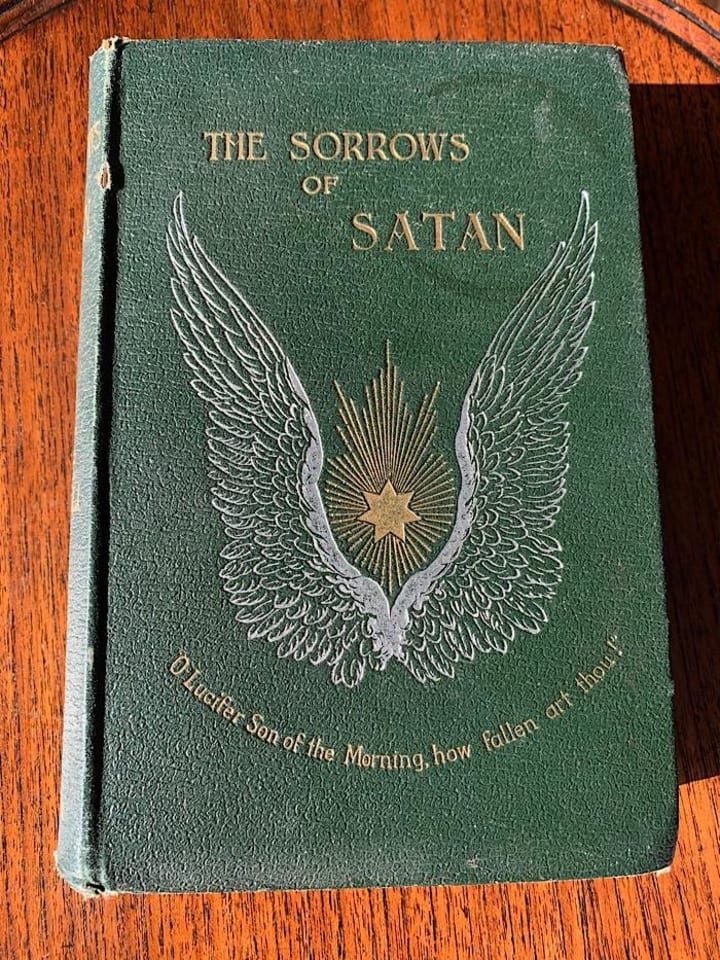
2. "The Alchemist" by Paulo Coelho.
It was the memory of this book that got me all weepy and caused me to travel back to all the others on this list.
I read this book in Lagos, 2012, a couple months or so before moving home to my parents in Makurdi (Nigeria) for a few months before returning to the UK.
This book and the few others I purchased by Paulo Coelho filled me with such a hunger for adventure especially as the following themes resonated quite strongly within me;
1. The importance of pursuing your personal dreams and goals, or what Coelho calls “your personal legend.” When you get closer to your personal legend, you experience synergistic support from the Universe. That helps to push you toward circumstances and people who can help you achieve your heart’s desire.
2. The oneness and interconnectedness of all things. Santiago first notices this when he is tending his sheep. He notices that he can communicate with them even though they don’t speak as humans do. He later notices that people speaking different languages can understand one another with ease. This is symbolic of our connection to a greater intelligence. Some call this oneness God, but Coelho never uses the term. He simply infers a greater intelligence that connects us all.
3. The practice of alchemy, and the full-circle experiences we get to have when we follow simple omens and make use of spiritual insight. Coelho’s book is simple. It uses symbols and written alchemy to explain its deep insights. This is true of life as well. If we follow the symbols, we can learn what steps we must take next on our own personal journeys. Life’s troubles may always beckon, but the omens will guide us to the next best step.
4. The inevitability of death and fear, and how unimportant both are when we are following our dreams. Coelho uses danger and fear as common themes to explore the ego. We learn how we can eradicate fear. This allows us to attain connection with oneness and experience our own spiritual transformations.
(Excerpt from www.theartofliving.com)
The Alchemist ends with the end of Santiago's journey across the sea and sands, right back where he started several years before, dreaming under a sycamore tree. In the end, Santiago found his treasure at the same spot where he had his dream at the beginning of the story but now he is a wise man, a real alchemist who knows how to turn metal into gold.
And even though I mostly try not to cater to regret concerning any life decision I ever made, I wondered how different life might have been if I didn't leave Nigeria to chase my dreams. Would it have affected the course of my life and those I love? Would it have changed the natural course of events? Would my dad still be alive? This thought made me weep.
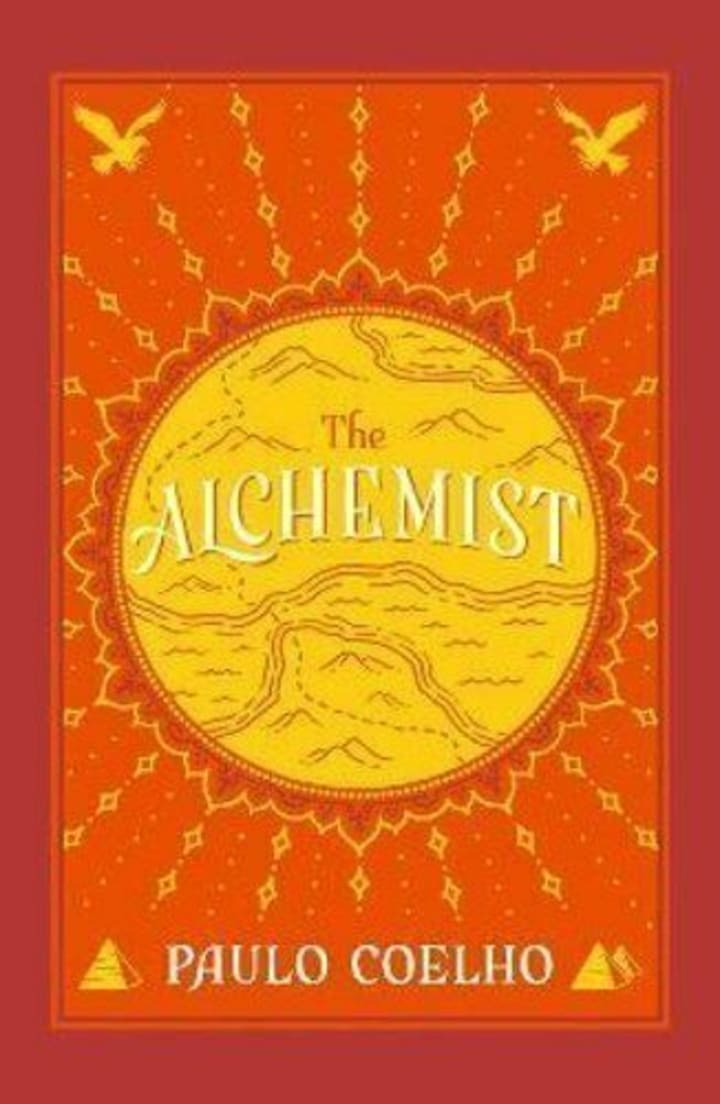
3. "Tuesdays With Morrie" by Mitch Albom.
I read this shortly after The Alchemist in 2012. Mid 2012 to 2013, I read about 42 books.
It's 25 years (22 August 1997)now since this title was first published.
This was when I started to find Death interesting. To this day, I cannot quench the obsession with finding out what happens on the other side of life as we know it.
What I loved about this story was the lessons in friendship and loyalty it engraved into my sub conscious.
Tuesdays with Morrie is a non-fiction account of Mitch Albom's conversations with his former teacher Morrie Schwarz, who died from ALS. Mitch first met Morrie while majoring in music at Brandeis University where Morrie taught classes in sociology. Mitch enjoyed Morrie's first class so much that he continued to take every class that he taught. When Mitch graduated, he lost touch with his professor until he saw Morrie on an episode of Nightline, in which Ted Koppel talked to Morrie about his disease and how Morrie felt about death and dying. Mitch renewed his relationship with Morrie by flying out from Detroit to visit Morrie every Tuesday in his home in Massachusetts. At this time Mitch worked as a journalist, mostly writing stories about sports. He became interested in what Morrie had to say and started bringing a tape recorder to their discussions. Later Morrie encouraged him to use the topics of their talks to write a book about Morrie's thoughts. This book is the result.
-www.softschools.com
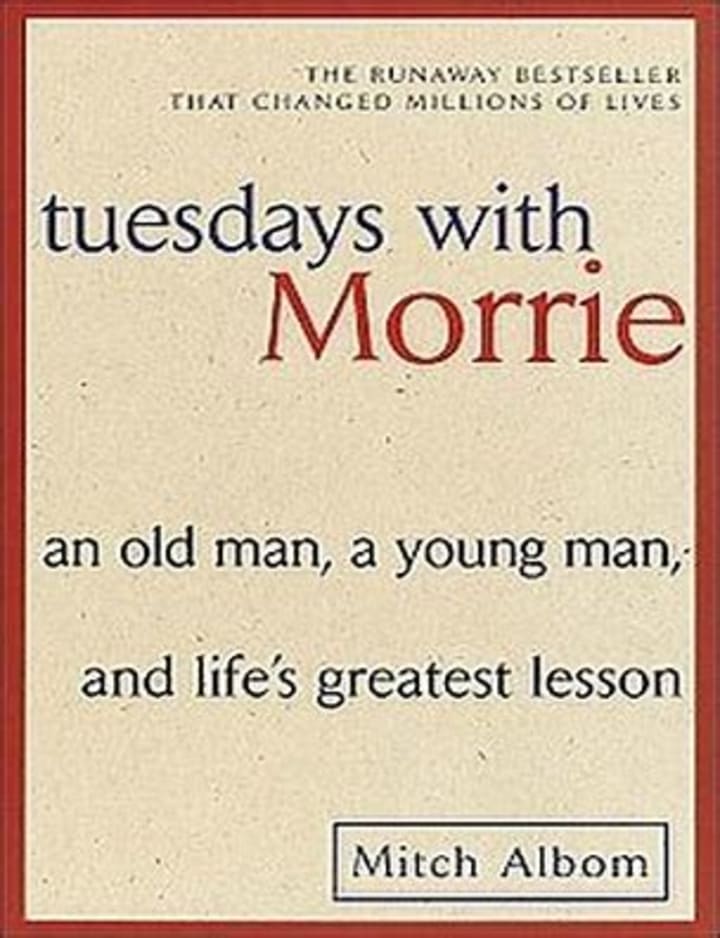
4. "The Four Agreements" by Don Miguel Ruiz.
I gave up trying to apply the four agreements in its entirety because I found that the more I tried to live by them, the harder it was to be accepted by others. As I get older, and realise the importance of maintaining my personal boundaries, I wish I stuck more to my guns and applied these social rules in my prior interactions.
It's a good thing there is always room to start again.
The four agreements is a practical guide to control your mind from false beliefs and show the path to achieve mental mastery, it shows you how you domesticated from childhood and how these guiding rules hurt you throughout your life
www.rystandards.com
The four agreements are:
1. Impeccable with your words.
2. Avoid taking things personally
3. Don't make assumption
4. Always do your best.
One would imagine that human beings would appreciate this level of candidness when dealing with one another. Sadly, many people do not appreciate the truth.
5. "Piercing The Darkness" by Frank Peretti.
My big brother has an even bigger library of books than I do and initiated me into the world of book collecting. This was one of the first books I read in my pre teens and it is a story that my brothers and I bonded on. Like some of his clothes he passed down books to my twin brother and I.
This book woke up my imagination especially at a dark time when I was going through a personal pain and shame I could not describe even to myself until only a couple years back and, the complexity of the plot and characters helped my young heart cope as I disappeared into the story.
I already had my own unique experience of angels, demons and the supernatural so when I read this book it gave what I had already seen some perspective somewhat.
It also helped me to name some of the inherrent sadness that plagued me to be depression.
"Piercing the darkness" follows the journey of Sally Beth Roe as she tries to escape her past and slowly overcomes her constant struggle to discern the Truth. Also told is the story of another small town, similar to that of "This Present Darkness" (The prequel) and called Bacon's Corner, and a resident named Tom Harris. His kids are ripped from his home by Child Services. Seeming to have no connection with other events at first, a young police officer, Ben Cole, is convinced what is being brushed off as a suicide is actually a murder, and ends up losing his job over the issue... which brings him to the side of the embattled Christian school. Caught in the crossfire is a little girl who's been forced into a curriculum of "meditation techniques" and "inner spiritual guides" that control her moods, attitudes, and actions, the little Amber, and her mother Lucy who realizes this lawsuit and the people who are "helping" her may be much, much more than she bargained for. Before the paths that Sally Roe and Tom Harris [and the others] are on collide, the Ashton Clarion editor and his wife, Marshall and Kate Hogan (from This Present Darkness), make a return appearance as veteran fighters in this war against the powers of darkness that threaten freedom of religion everywhere. As the story unfolds, the lawsuit and its participants are soon locked in a struggle of ethics versus non-ethics, absolutes versus relativism, right versus wrong, and those with interest in this battle are shown to be even in the highest places of government.
-www.bookstldr.com
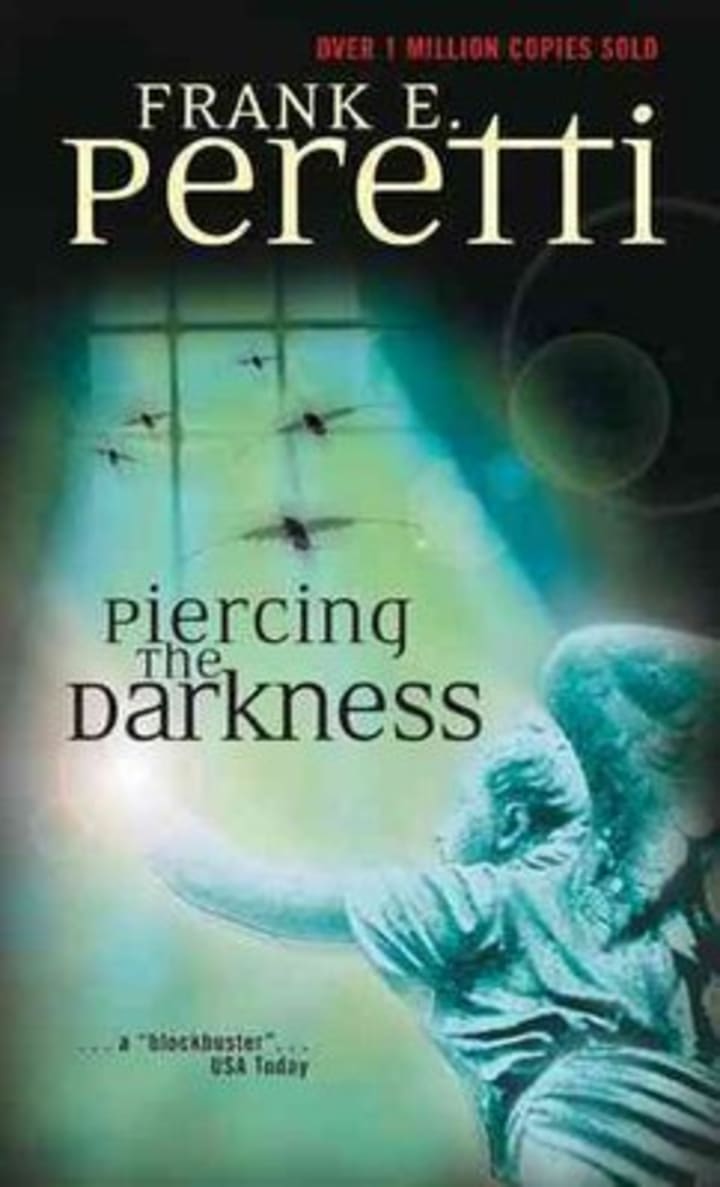
6. "The Five People You Meet in Heaven" by Mitch Albom.
I always wonder about those of my friends and family who have transited. I wonder which five of them I get to meet when it is my turn or if I get to meet more than five. So when I first read this book in 2012, it brought me a new kind of comfort.
When my father transited last year, I revisited the story and tried to imagine who his own five people he met in heaven were, and where heaven was in the first place. That was how I also got inspired to start writing the story "East". I still haven't found were heaven is but I imagine that it is in the direction of east of the universe.
After the return from the war, the novel focuses on Eddie’s inner struggle and his diminishing connection with the worlds. The novel The Five People You Meet in Heaven begins with a crippled elderly man, Eddie, who works at Ruby Pier, a seaside park, in maintenance.Eddie has always wanted to leave Ruby Pier to make a life for himself elsewhere, but has never been able to. While making his ordinary rounds one day, Eddie sees a cart on a ride called “Freddy’s Free Fall” hanging and threatening to dump out the ride-goers. Eddie quickly helps other workers get the people out, but then he notices that the cart is still falling—while a little girl, “Amy or Annie,” stands below. Eddie goes to save her, and dies when the cart falls on him.
Eddie goes to heaven, where he travels through many shifting colors until he meets the Blue Man, who was one of the “circus freaks” at Ruby Pier long ago. The Blue Man tells Eddie that in heaven, he will meet five important people who will each teach him a lesson about his life. The Blue Man explains that he turned blue as a child from medicinal silver nitrate, and led a lonely life thereafter. He explains that he died because of Eddie: when Eddie was a child, he once ran into the road after a lost ball, and the Blue Man had a heart attack after swerving to avoid hitting him. The Blue Man teaches Eddie the lesson of human connection—that all lives are connected, even those of strangers.
-www.litcharts.com
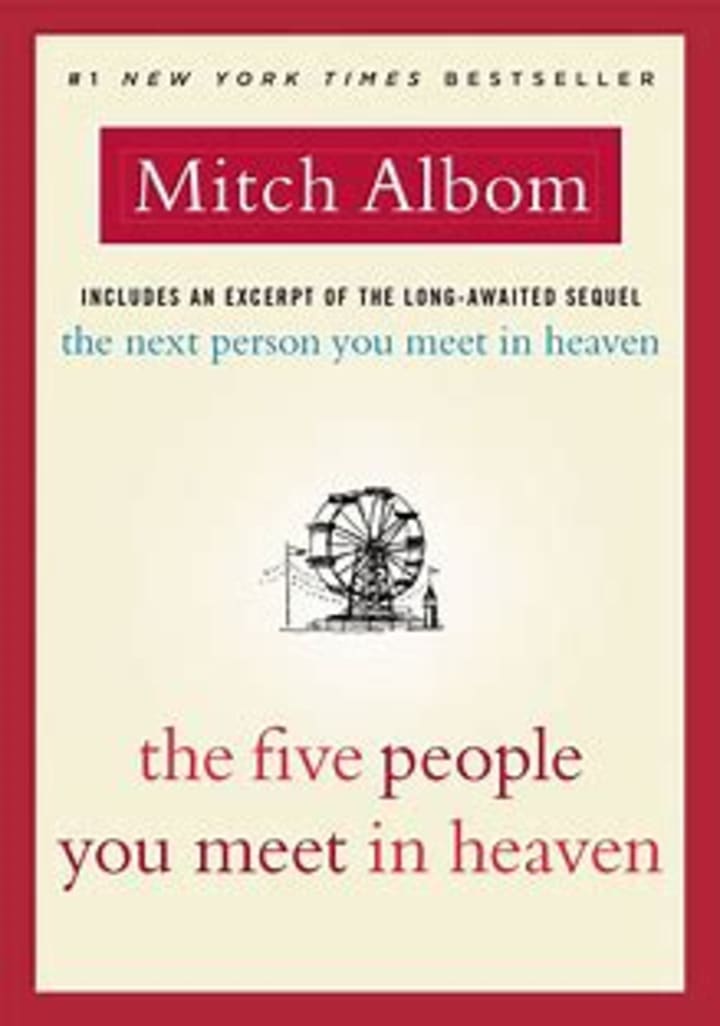
7. "Half of a Yellow Sun" by Chimamanda Adichie.
I shared the experience of this novel with my best friend at the time whose name is Gesila. I recall we were at the end of our second year in University of Jos, Nigeria but the details are blurry in my head.
I grew up with my mum recounting some of her experiences of the Biafran war and this spiked some of my initial interest in the story of this novel.
It made me develop a new found respect for the Igbo people of Nigeria and people like my maternal grandfather who like many good Nigerians refused to cater to the hate propagated by the war, by choosing to show solidarity and support instead at a time were neigbours betraying one another seemed so rampant.
"Half of a Yellow Sun" is a 2006 novel by Chimamanda Ngozi Adichie that tells the story of the Biafran War from the perspective of four people from different backgrounds. The novel features a British expatriate, a university professor, a house servant, and the daughter of a wealthy Igbo chief who struggles through the war and fights to survive.
-www.bookanalysis.com
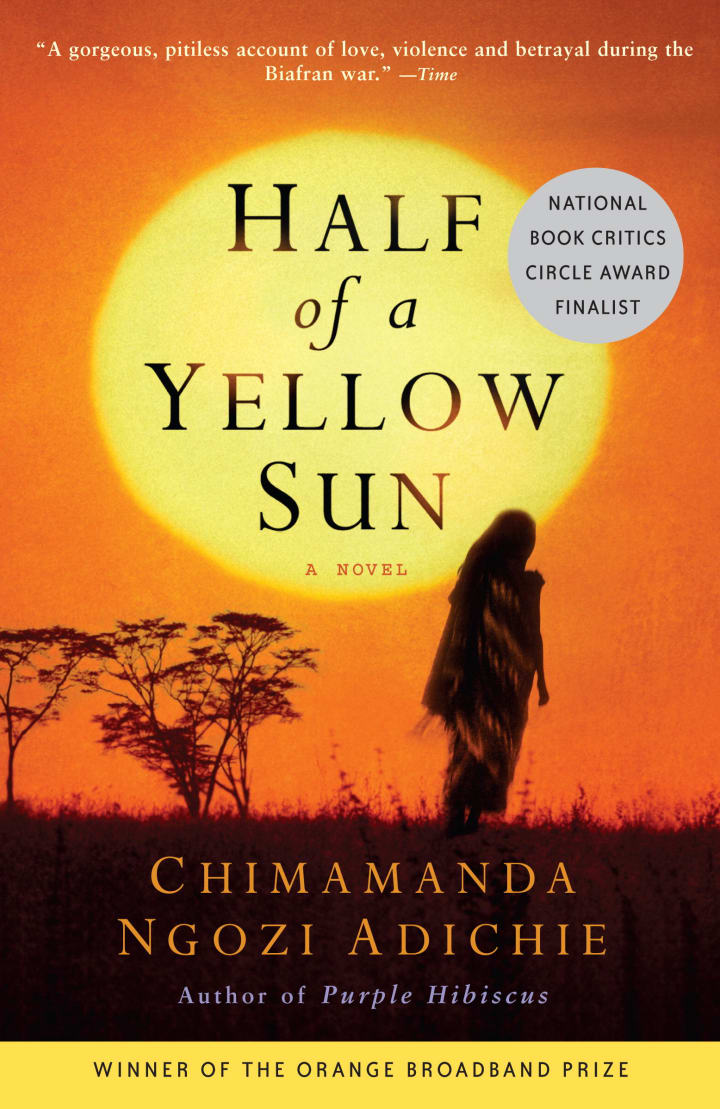
8. "Anthills Of The Savannah" by Chinua Achebe.
We had to read this title in our fourth year of secondary school (SS1) if I recall correctly. Most of my classmates couldn't stand the story but there were bits in it that certainly got our attention.
I remember how we had to write a detailed literature review outlining the themes of the novel which centred mostly on the misuse of power with the minor theme of love and betrayal.
I don't know why I was so invested in this story. I remember relating to the character Beatrice Okoh on so many levels of the kind of independence I once dreamed to have as a woman living in Nigeria.
Anthills of the Savannah takes place in the imaginary West African country of Kangan, where a Sandhurst-trained officer, identified only as Sam and known as "His Excellency", has taken power following a military coup. Achebe describes the political situation through the experiences of three friends: Chris Oriko, the government's Commissioner for Information; Beatrice Okoh, an official in the Ministry of Finance and girlfriend of Chris; and Ikem Osodi, a newspaper editor critical of the regime. Other characters include Elewa, Ikem's girlfriend and Major "Samsonite" Ossai, a military official known for stapling hands with a Samsonite stapler. Tensions escalate through the novel, culminating in the assassination of Ikem by the regime, the toppling and death of Sam and finally the murder of Chris. The book ends with a non-traditional naming ceremony for Elewa and Ikem's month-old daughter, organized by Beatrice.
-Wikipedia.org
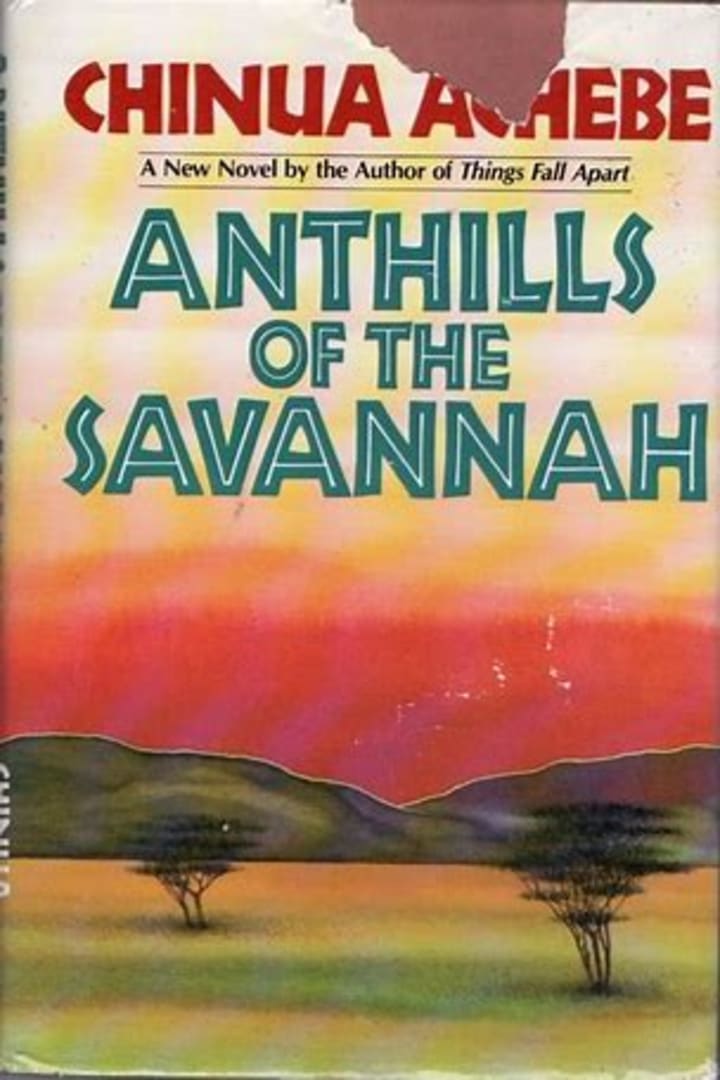
9. "Thr3e" by Ted Dekker.
This is another book I bonded with my brothers over. I read it because I wanted to be a part of the conversations they had about it. And I am glad I did because it is another really memorable story that I wish its movie version did more justice to.
"Evil is beyond the reach of no man." "But can a man remove himself beyond the reach of evil?" is a question raised from the very beginning of the story and one, which I ponder on from time to time.
Thr3e has the best plot twist I have ever seen in any novel or story.
Thr3e follows the story of Kevin Parson, a full-time seminary student struggling, we think, with only his thesis until he’s targeted by a stalker who may be the infamous Riddle Killer, or RK. So notorious is RK that he is profiled in a nonfiction bestseller by police psychologist Jennifer Peters, who believes Kevin may hold the keys to the criminal’s undoing.
Kevin, meanwhile, is forced to confront his emotionally dysfunctional and physically abusive upbringing as he turns his thoughts toward the childhood bully whose menacing antics seem to eerily foreshadow those of RK. In eluding his stalker and making sense of his past, Kevin is assisted by long-time friend Samantha, whose insights into the case seem alarmingly accurate and mysterious.
-www.pluggedin.com
And for those of you who haven't read it, I will stop here.
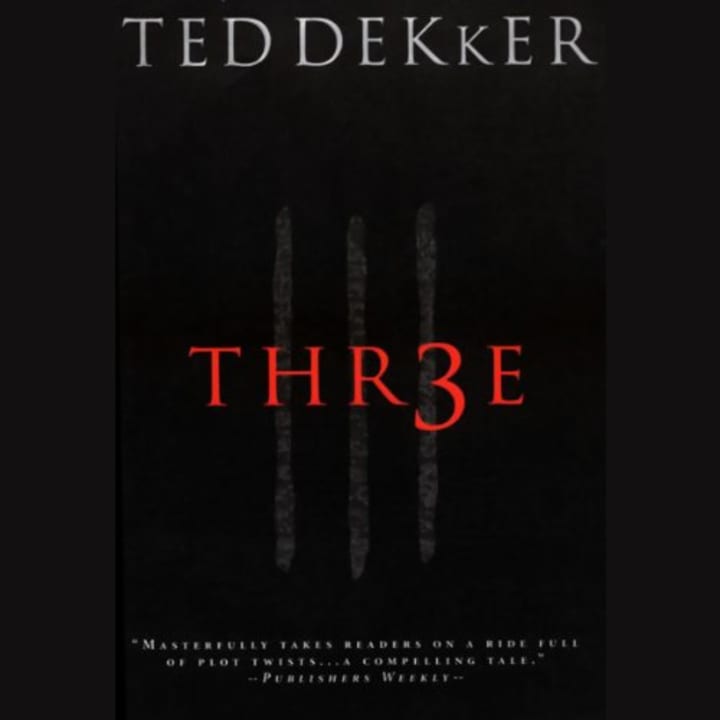
10. "The Screwtape Letters" by C.S Lewis.
I listened to this treasure on Audible in October 2019 at the start of my reawakening aged 33. Granted, it fed some of my natural in-built paranoia but like all bad habits I ever enjoyed, I look forward to reading it again. Listening to it taught me to assign my random thoughts to their own characters with unique voices too.
The novel consists of 31 letters written by a devil named Screwtape to his nephew, a young devil named Wormwood. The author, C.S. Lewis, notes that he has no intention of explaining how he came to acquire these letters.
-www.litcharts.com
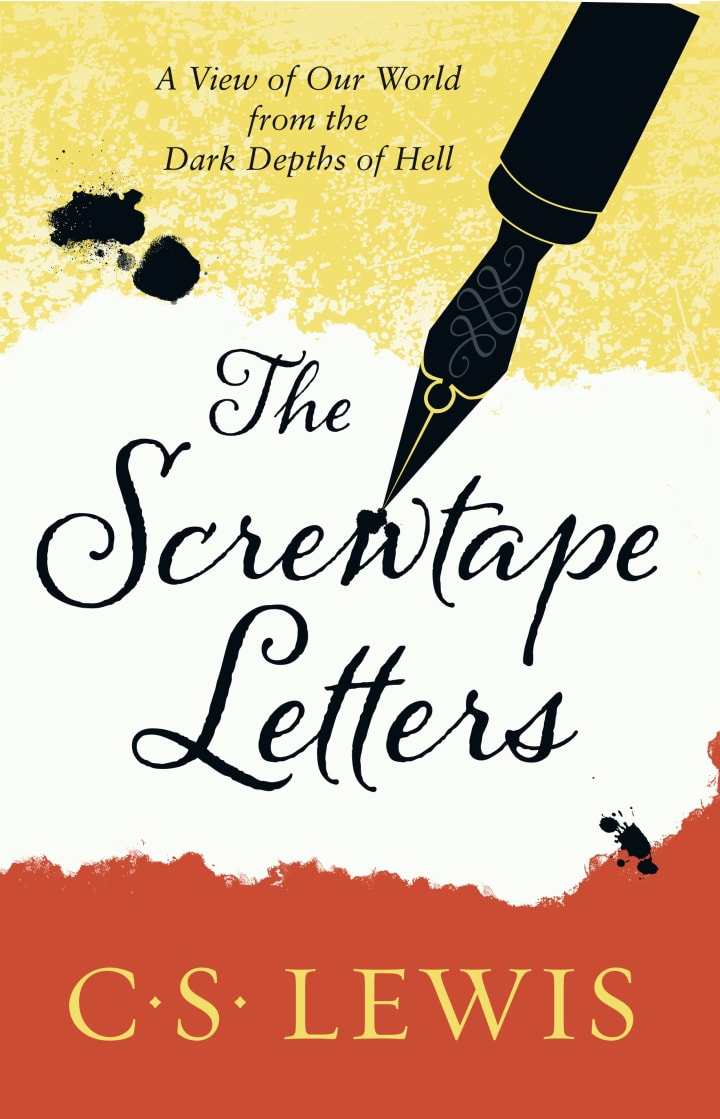
So, there you have it all- My top ten favourite books I ever read. What are yours?
About the Creator
Cathy (Christine Acheini) Ben-Ameh
Bio:
Cathy Ben-Ameh has published two books; "The Impact of Music Streaming on The Music Industry: Case study-Spotify" and "'13- A Chapbook of 13 Short Poems". https://linktr.ee/cathybenameh






Comments
There are no comments for this story
Be the first to respond and start the conversation.